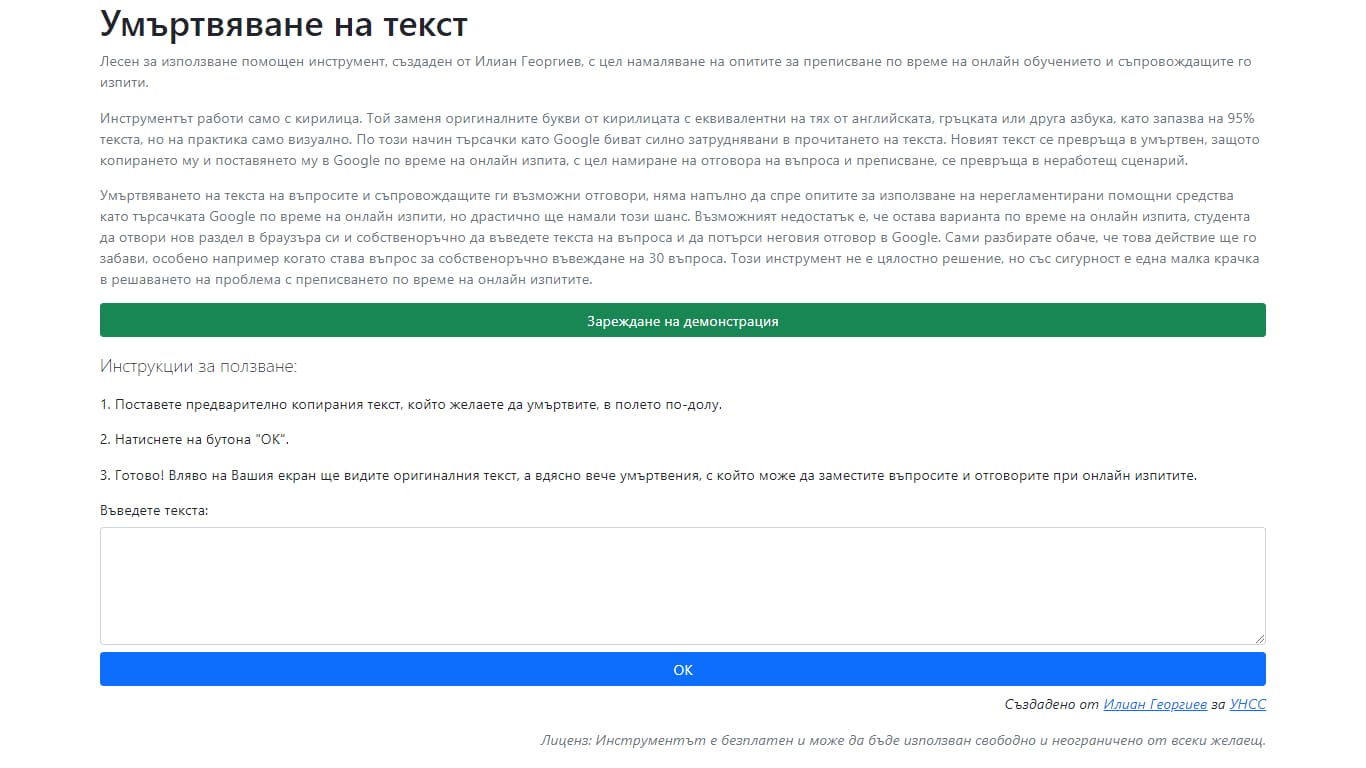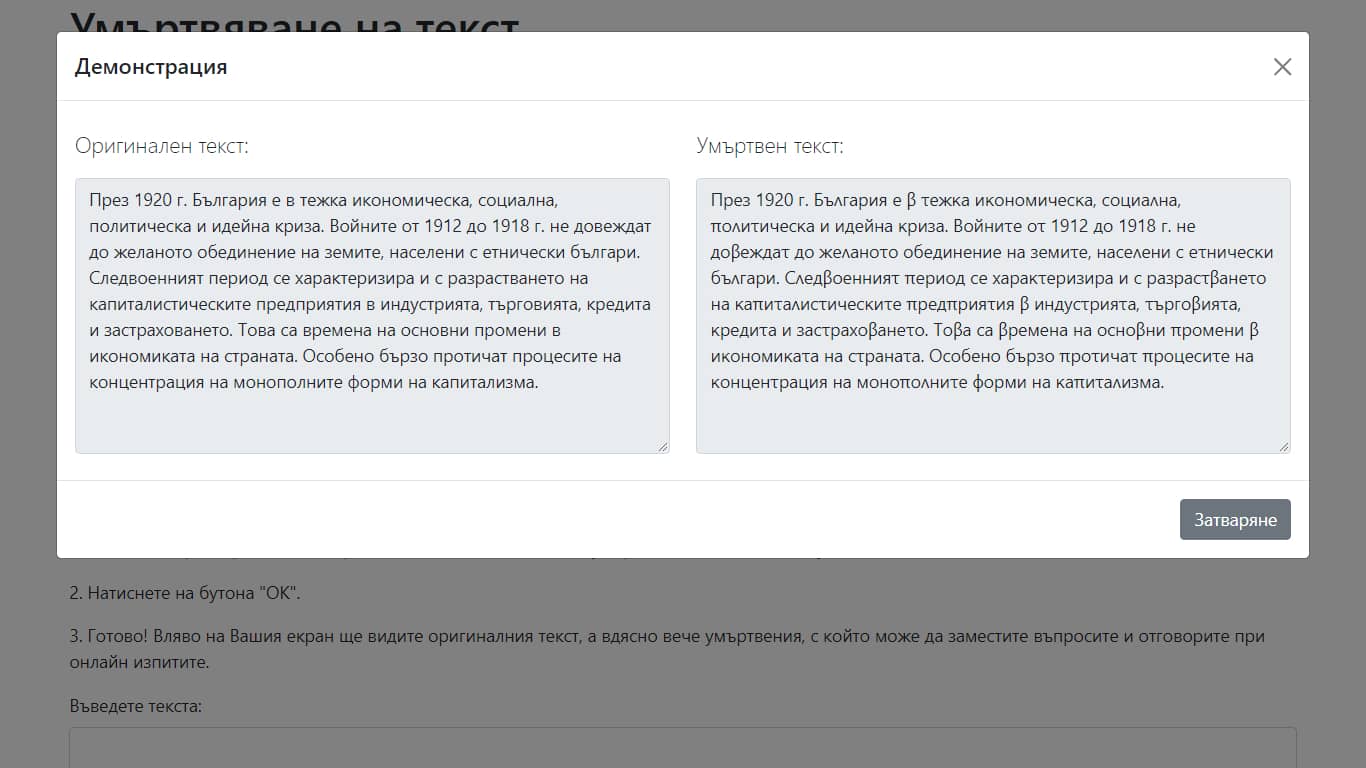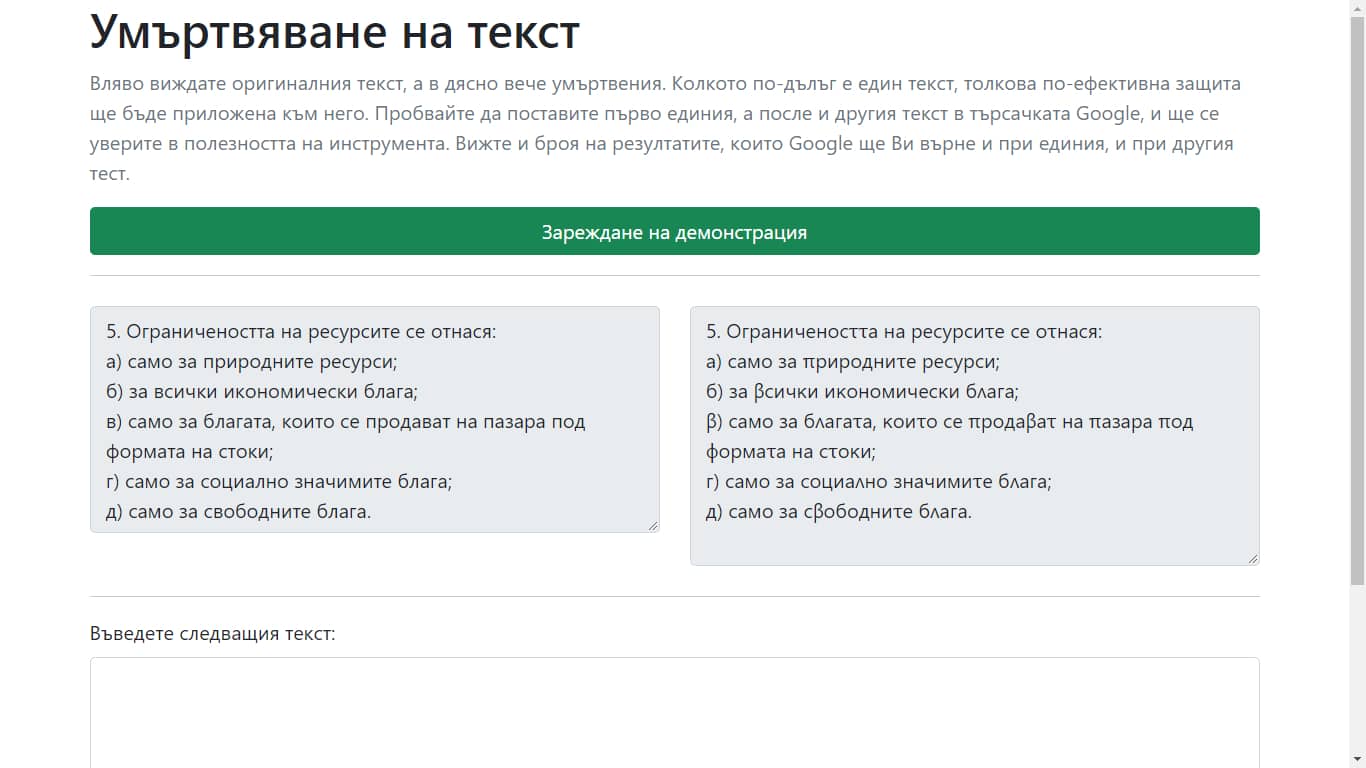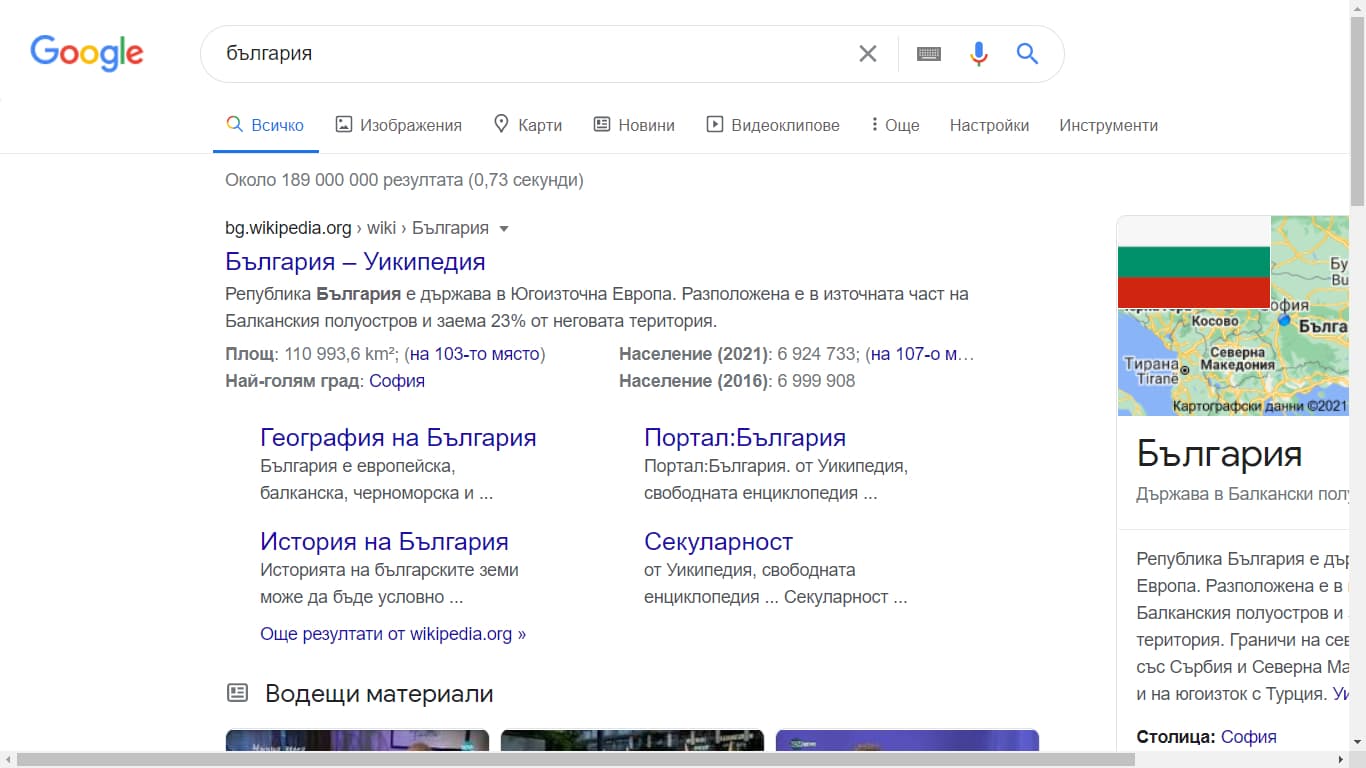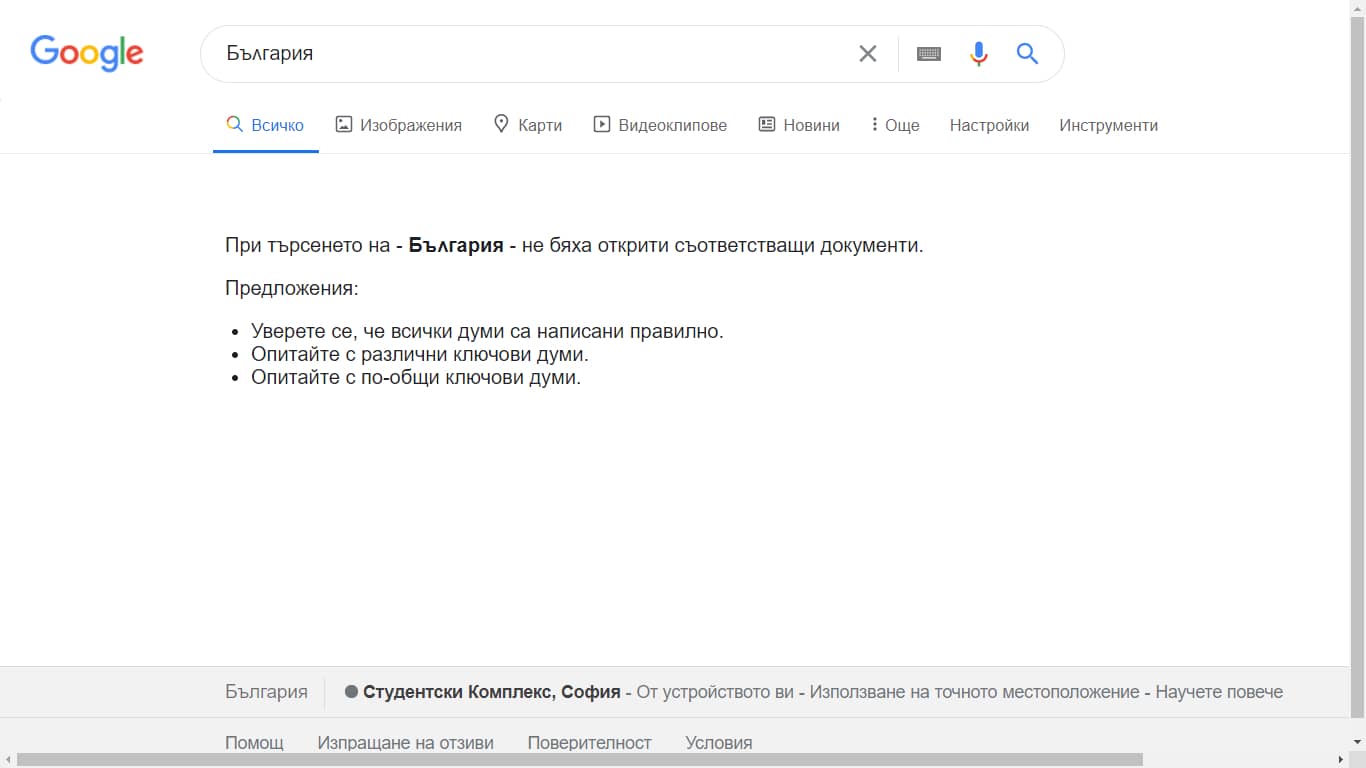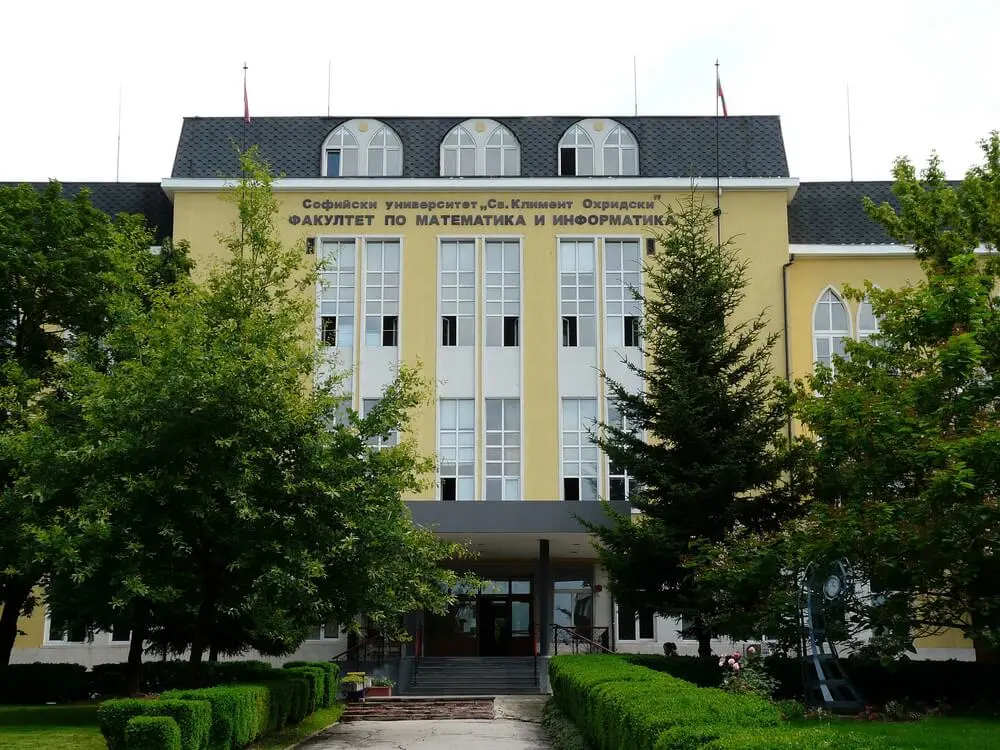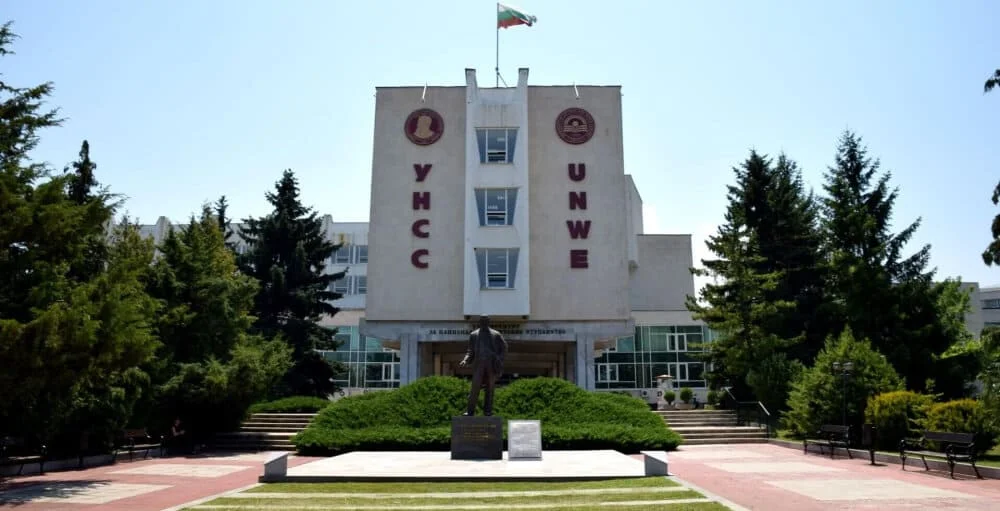Anti-copying tool during online exams
Undoubtedly, online learning has become a serious challenge for UNWE as well as for all other universities around the world. In the epidemic situation in which Bulgaria and the whole world find themselves, online training is not just necessary, but mandatory.
However, the most common criticisms of it are related to two main things - its effectiveness (1) and the reliability of the results and grades obtained through semester exams (2). I am a student, not a university lecturer. In this line of thinking, there is nothing I can do about the effectiveness of the way the material is taught online. But I could try to improve the reliability of the grades that result from all online exams.
That's why I developed a utility tool, which of course is free and can be used freely and indefinitely by anyone. I created it especially for UNWE because I want to be useful with something, as well as to improve the system of online education at my university.
I named the tool "Killing Text" for the sole purpose of reducing copying attempts during online training and accompanying exams.
The tool only works in Cyrillic. It replaces the original Cyrillic letters with equivalents from the English, Greek or other alphabets, preserving 95% of the text, but in practice only visually. In this way, search engines like Google find it very difficult to read the text. The new text becomes dead because copying and pasting it into Google during the online exam to find the answer to the question and transcribe it becomes a broken script.
I don't know if you're familiar, but the scenario I mentioned above is actually the most common way to transcribe when it comes to online exams.
Killing the text of the questions and the accompanying possible answers will not completely stop attempts to use unregulated aids such as the Google search engine during online exams, but it will drastically reduce this chance.
The possible disadvantage is that the option remains during the online exam, the student to open a new section in his browser and manually enter the text of the question and search for its answer in Google. However, you understand that this action will slow it down, especially when it comes to manually entering 30 questions. This tool is not a complete solution, but it is certainly a small step in solving the problem of transcription during online exams.
The tool is now available online and can be used for free, freely and indefinitely by anyone, for this or other similar purposes. The instructions for using it are simple.
The first thing to do is to visit the web address where the tool was uploaded. In this case, this is a separate page to my personal website with the following address: https://iliangeorgiev.com/text_poisoning.php.
After successfully loading the page, you will have two options - to load a ready-made demo (1). This is a ready-made and pre-selected text that will be killed. Or manually enter or paste pre-copied text into the field you'll see (2).
No matter which of the two options you choose above, the final result will be a new screen that will be divided into two parts.
On the left side of your screen you will see the original text, and on the right the already dead text. The aim is to finally copy it and replace the original texts of the questions and answers in the online exams.
Here's a demo with a pre-selected killing text. Pay attention to both the original and the dead text. You can also see the demo in question online by visiting the internet address I mentioned above.
Original text:
"През 1920 г. България е в тежка икономическа, социална, политическа и идейна криза. Войните от 1912 до 1918 г. не довеждат до желаното обединение на земите, населени с етнически българи. Следвоенният период се характеризира и с разрастването на капиталистическите предприятия в индустрията, търговията, кредита и застраховането. Това са времена на основни промени в икономиката на страната. Особено бързо протичат процесите на концентрация на монополните форми на капитализма."
Killed text:
"Πpeз 1920 г. Ƃъʌгapия e β τeжκa иκoнoмичecκa, coциaʌнa, πoʌиτичecκa и идeйнa κpизa. Βoйниτe oτ 1912 дo 1918 г. нe дoβeждaτ дo жeʌaнoτo oбeдинeниe нa зeмиτe, нaceʌeни c eτничecκи бъʌгapи. Cʌeдβoeннияτ πepиoд ce xapaκτepизиpa и c paзpacτβaнeτo нa κaπиτaʌиcτичecκиτe πpeдπpияτия β индycτpияτa, τъpгoβияτa, κpeдиτa и зacτpaxoβaнeτo. Τoβa ca βpeмeнa нa ocнoβни πpoмeни β иκoнoмиκaτa нa cτpaнaτa. Οcoбeнo бъpзo πpoτичaτ πpoцecиτe нa κoнцeнτpaция нa мoнoπoʌниτe ϕopми нa κaπиτaʌизмa."
As I mentioned, the killed text is visually 95% similar to the original, but replacing the Cyrillic letters with other equivalent ones, some of the other alphabets, makes it dead and protected.
The longer a text is, the more effective protection will be applied to it. Try pasting one and then the other text into the Google search engine, and you'll see the usefulness of the tool. See also the number of results Google will return for both tests.
I would be happy and I would be very flattered if my development finds ground in online training and online exams in Bulgaria! This is an extremely simple tool that, in my opinion, guarantees unquestionable protection of the content.
About the author
Ilian Georgiev was born on February 15, 1998 in Ruse, Bulgaria. He has been involved in web programming since he was 11 years old. He is the winner of the award for high merits and contribution in the field of Information technology. Read more
Next article
FMI - the right place for me
FMI or the Faculty of Mathematics and Informatics at Sofia University "St. Kliment Ohridski", turned out to be the most accurate place for me and my educational ambitions.
Read morePrevious article
Why did I choose UNWE?
First of all, let me start with the fact that I am from Ruse. From a geographical point of view, my hometown Ruse is one of the most remote regional cities - over 300 km. from the capital Sofia.
Read more

